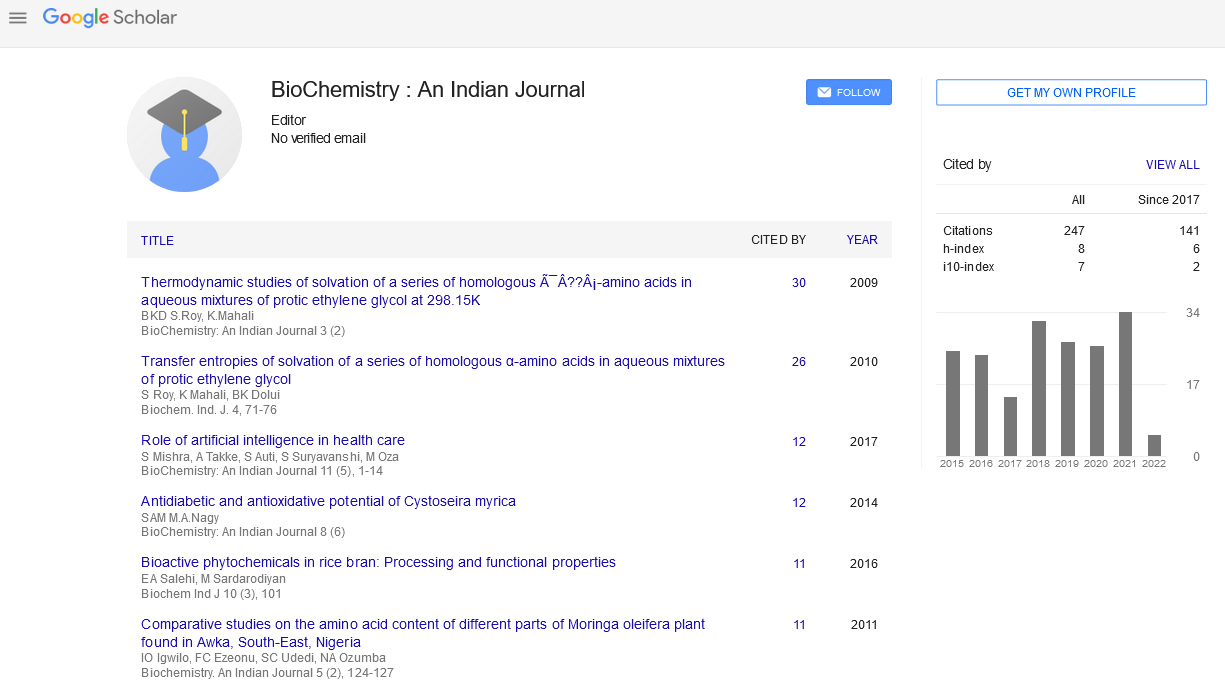Abstract
Effect of storage time and temperature on serum clinical biochemistry analytes
Author(s): Manju Bala Pahwa, K.Menaka, Minakshi, Manish Raj, Veena SinghObjective: The aim of the present study was to determine the effect of storage time and temperature on laboratory results of routine clinical biochemistry analytes in sera from apparently healthy volunteers. Materials andmethods: Ten healthy volunteers were instructed to fast overnight and 10 ml of blood was collected from each subject without anticoagulant (in red capped vacutainer). Samples were allowed to clot at room temperature for 20 min, centrifuged and serum separated which was stored in various aliquots. Baseline analysis (“0” day values) of 18 analytes in serum of each subjectwas done without delay on the same day of collection. Other aliquots were stored at 0ï‚° C and 4±1ï‚° C with cover of aluminiumfoil to avoid exposure of direct light and analysed on 3, 7, 15 and 30 days. Results: Urea, uric acid, phosphorus, TG and HDL were stable till 7 days whereas ALP was stable till 15 days but SGOT was stable upto 30 days at both 0ï‚° Cand 4±1ï‚°C. ALP, Amylase and urea were stable up to 30 days at 0o C temperature. All analytes showed significant variation on 3rd daywhichwere stored in room temperature except calciumwhich was stable. But glucose, creatinine, inorganic phosphorus and potassium were least stable and should be determined within 48 hours at 4±1ï‚° C and 24 hours at 23±1ï‚° Cfor these analytes. Conclusion: Various routine biochemical analytes were stable using the storage conditions tested in this study at least up to 7 days in usual refrigerator. This evidence can be used in exceptional circumstances because processing of any analyte on the same day should be done for better reproducibility. Beyond all this, it is even very important and useful to check the reliability of technical and instrumental resources that the laboratory will use during the study because molecular alterations of the analytes due to variable storage conditions can cause misleading results.

